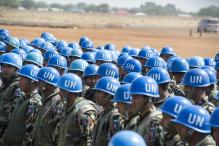The majority of UN sanctions regimes are designed in support of a peace process or to protect an existing agreement. Most of these peace processes involve talks that take place outside the country or region in conflict. Often, however, key stakeholders in the conflict – whose participation in the talks is necessary for a credible and even a durable outcome – are under UN travel bans and asset freezes. These targeted measures are among the most frequently applied of all UN sanctions. Thus, it is often assumed that mediators face a dilemma: exclude listed individuals from talks held abroad or include them and risk violating the existing travel ban and adjoining asset freeze.
Or do they? In all but one of the existing UN sanctions regimes, there are little known and rarely used exemptions that would allow sanctioned individuals to participate in peace talks. The language varies in specificity and scope and the process for applying differs between regimes (and even within regimes). But the overall message is clear: mediators possess a formal option for requesting an exception to a sanctions measure in order to enable the successful convening of parties for peace talks.
This memo, the first in the Sanctions and Mediation Project's series, outlines the existing constellation of exemptions related to peace talks, examine how they are meant to work, share insights on how they actually work, discuss implications for policy practitioners, and propose actions aimed at improving these exemptions’ attractiveness to mediators.
Research output:
Policy Memo: Paving Pathways to Peace Talks with Sanctions Exemptions?



